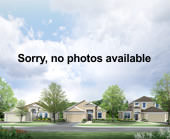Regardless whether you opt for a smoke detector alarm or fire alarm system, some type home security warning device is essential for family safety. There are important differences between a smoke alarm and fire alarm.
Smoke Alarms
A smoke alarm system:
- Alerts you of the danger of a fire when in the home; especially at night while sleeping.
- Provides early warning of a fire so that family members can get out of the house safely.
- Facilitates early fire department notification; helping to prevent extensive damage to the home.
- Is a reasonably priced security device that can save lives!
Since a high percentage of fire death victims were asleep at the time of the fire, and smoke inhalation is the leading cause of fire related deaths, every household should have some type of fire safety system.
Smoke alarm units are a basic consideration. They cost about $15 each; a wireless smoke alarm is quick and easy to install as a do it yourself home security system project. Although helpful in avoiding a catastrophe should a fire occur, a fire alarm system offers yet more protection.
Fire Alarms
In addition to all of the above:
- Home fire alarm systems are more complex than smoke detectors.
- The fire sprinkler system part of a fire alarm reacts to the presence of smoke and flames, automatically activating and dousing the fire.
- An optional transmitter can assist persons who are elderly or have health problems by automatically emitting a rescue or medical need alert.
- Sound effects (like fire alarm bell and horn) combined with visual alerts - such as flashing lights - alert even hearing impaired persons.
- An optional fire alarm signaling system provides an extra measure of safety; manual signal boxes that enable persons to pull a handle, sending out a warning of fire outbreak - whether potential or already in progress.
A fire alarm “notifier†automatically sends an emergency signal to a central monitoring station or the local fire department.
As evidenced above, fire alarm systems are more complex than smoke alarm detectors.
A fire alarm's most basic components include:
- Alerts - audible bells and horns, and visual - such as a fire alarm strobe or flashing lights. Multiple alerts that comply with national fire alarm code requirements; serving even hearing impaired persons with ample warning so that they can vacate the premises.
- Fire alarm control panel - that connects the central monitoring station and all other components of the system together.
- Detectors - various detection devices. Some send out a signal when temperatures get too high; others become tripped by smoke particles or chemical reactions in the air.
- Emergency backup battery - a safety feature so the system will continue to operate, even during a power outage.
- Fire sprinkler system - whether a commercial or home sprinkler system; automatically activated, reducing risk of personal injury and fire damage to structure.
- Fire alarm box - part of commercial fire alarm systems, placed in accessible areas of the building. Some signal boxes are encased by glass which must be broken to access the pull handle - sending out a fire alert.
- Transmitter devices - optional features for the elderly and those with health problems to wear around their neck or on a wristband; emitting a signal for help when activated.
Whether a residential fire alarm or commercial fire alarm system, once triggered, the alarm connects to a central monitoring or fire station. Automatically providing all necessary contact and location information. Offering round the clock surveillance, 7 days a week, 365 days a year.
Of course, installation for this type home security system is much more difficult than standard smoke detectors and alarms. Often requiring the services of a professional fire alarm technician. Nevertheless, some type system installations are viable as a DIY home project - requiring a modest level of skill.
What to Look for in a Fire Alarm Monitoring System
Although millions of residences and businesses across America have some type fire alarm system, there are but a handful of companies that manufacture monitoring equipment.
To ensure you select the best product possible for your budget and needs, follow the helpful tips below:
- Consider how many units you will need to adequately protect your home or business.
- Determine whether it would be best to purchase or lease a fire alarm system.
- Before making a purchase, talk with several companies about what specific features their system offers.
- Conduct business in person - not just over the phone, so that you can see the actual product and all of its components.
- Is the system equipment UL certified?
- If the system is for a business, does it comply with Americans with Disability Act Accessibility guidelines; AFFA?
- Get warranty/guarantee information in writing; make sure you fully understand all aspects of it.
- Before making a selection get product and installation quotes instead of estimates - which are subject to change.
- Request references, and check them out. Ask how quickly the equipment was installed, how happy they are with their purchase, how accurate contract information was, and how available the company was to answer questions and address problems once the system was installed.
Commercial businesses must meet the national code for commercial fire regulations; the nfpa 72 fire alarm pdf. Requiring specific system features; including sprinkler systems installed by a licensed plumber.
Commercial and residential setup fees vary greatly; anywhere from around $150 to over $2,500. Monthly monitoring fees generally run under $50. Helpful tip: some companies provide basic equipment free with a long term contract.
Locate a Fire Alarm Installation Service Provider Quickly and Easily
TrustedPros.com is your best resource to connect with a fire alarm installation service provider in your area; quickly and easily.
Simply sign up without cost or obligation, and post your project online with our user-friendly tools. Receive competitive bids from service providers in your area, vying for the job.
View contractor portfolio pages online at TrustedPros.com; including company profile, licensing/certification information, references, and customer reviews. Also visit the photo gallery pages, with pictures of recently completed projects. And then make an informed hiring decision - or hire no one at all. Remember, there is no obligation whatsoever.
Posted by: TrustedPros



